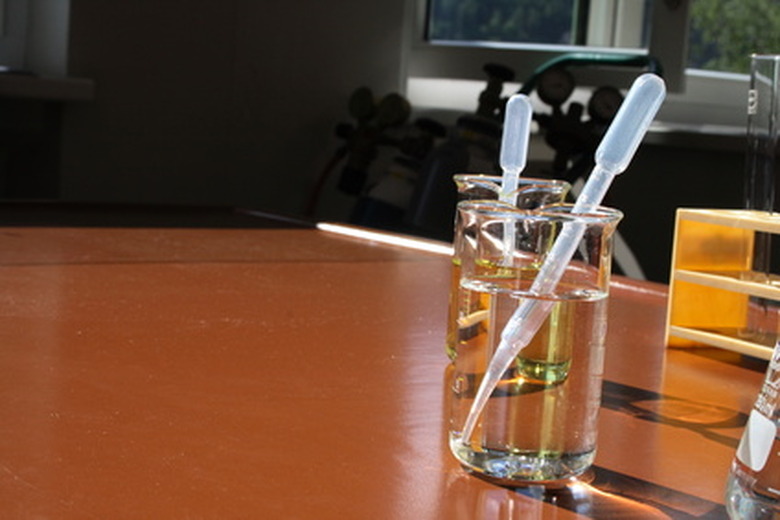Science Project Ideas & The Scientific Method
Science fair projects are based on the scientific method. Students formulate a hypothesis and predict the outcome before performing the experiment. The test results support or refute the hypothesis.
Type of Competition
Type of Competition
Science fair competitions may involve students from preschool to high school age and may be local, regional, state or national contests. The rules vary among the competitions and the science fair project is designed with the rules in mind.
Science Fair Ideas
Science Fair Ideas
Students design science fair projects to examine a testable question. The experiment uses available equipment or tools and is safe to perform. Topics range from agriculture to zoology. "Does organic matter affect the water-holding capacity of soil?" is a testable question. Building a model of a volcano is not.
Project Format
Project Format
Students create a title, develop a question, write a hypothesis, make a list of materials and outline the test procedures. They then perform the experiment, tally the data and explain the results.
Display
Display
Often science fair projects are presented on a tri-fold cardboard display board. Laboratory notes and a detailed laboratory report are usually included with the display.
References
Cite This Article
MLA
Dieter, Kim. "Science Project Ideas & The Scientific Method" sciencing.com, https://www.sciencing.com/science-project-ideas-the-scientific-method-12745722/. 17 October 2010.
APA
Dieter, Kim. (2010, October 17). Science Project Ideas & The Scientific Method. sciencing.com. Retrieved from https://www.sciencing.com/science-project-ideas-the-scientific-method-12745722/
Chicago
Dieter, Kim. Science Project Ideas & The Scientific Method last modified August 30, 2022. https://www.sciencing.com/science-project-ideas-the-scientific-method-12745722/
